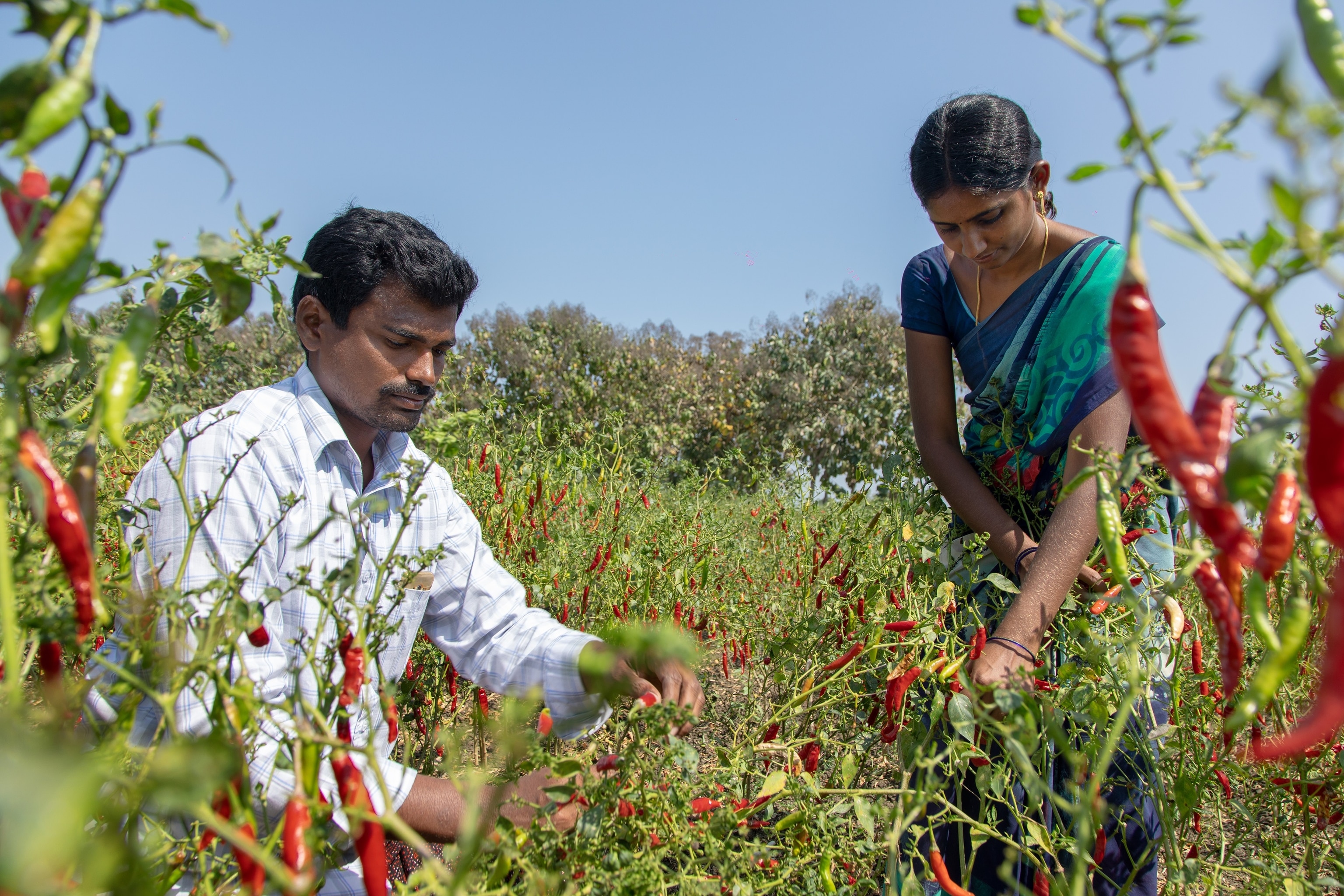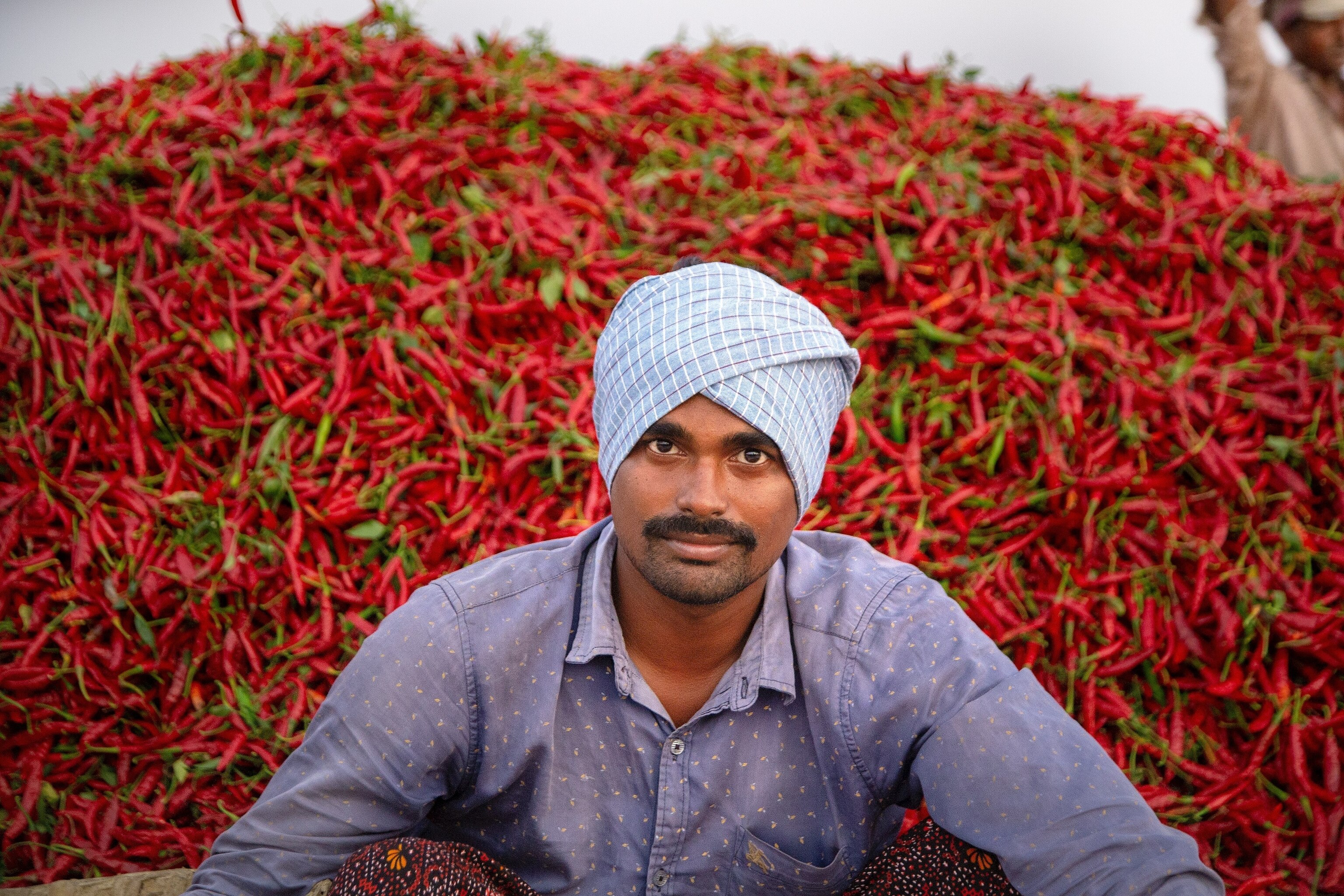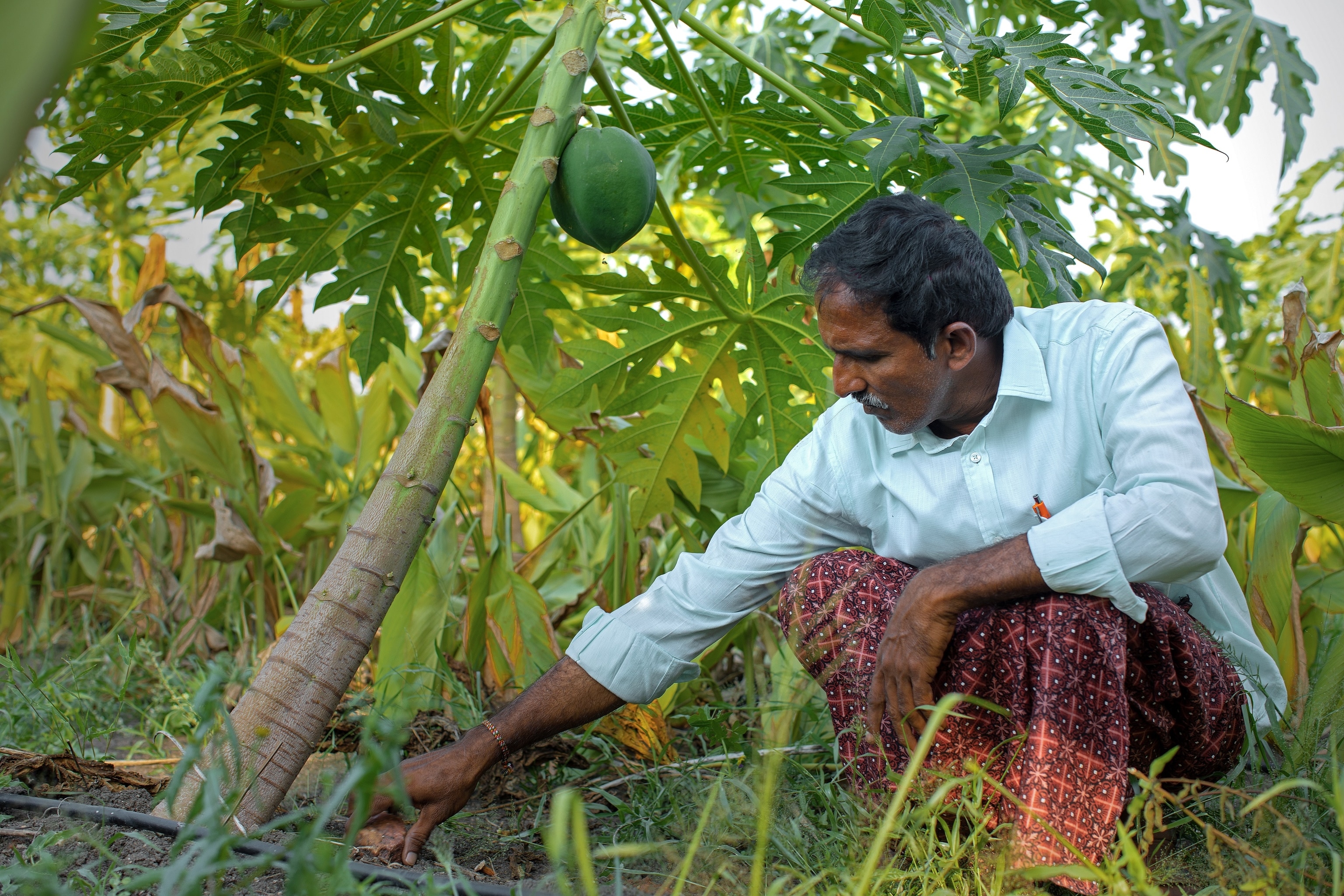
Getting back to nature
Farmers in Andhra Pradesh are forgoing chemical pesticides in favor of natural methods, and everyone is reaping the rewards.
Millions of farmers in India have rejected chemical pesticides as part of a growing movement that favors natural alternatives. Non-pesticide management is a sustainable approach to pest control operating on the theory that an infestation of one type of insect indicates a disturbance somewhere in the environment. Getting to the root of the problem instead of treating the symptoms can both balance the insect population and improve crop health overall.
The switch to natural farming methods began as a grassroots movement. In 2000, the 900 or so villagers living in Punukula, Andhra Pradesh, suffered from a number of debilitating issues. Farmers reported health problems that ranged from acute poisoning to death. Pest infestations regularly destroyed crops as insects developed resistance, causing farmers to take out loans to buy an increasing number of expensive chemical pesticides. Families faced crippling healthcare costs, crop failure, loss of income, and debt, all directly related to pesticides.
With the help of local organizations, farmers experimented with non-pesticide management techniques like using natural deterrents (such as neem and chili pepper) to manage insects, and by planting trap crops (like marigold and castor). Whereas chemical pesticides kill all insects, non-pesticide management seeks to balance the ecosystem so that insects exist in normal numbers (and never reach infestation levels). Many insects – like ladybugs, dragonflies and spiders – have an important role in nature that can benefit plants.


Within a year of using natural agricultural methods, villagers noticed a number of positive impacts. Previously reported health issues vanished. Farms practicing non-pesticide management boasted higher profits and fewer expenses. Sourcing, grinding and mixing natural repellants like neem seeds and chili peppers also created more jobs in the village. As farmers cultivated more land, technology like backpack sprayers helped them tend to crops more efficiently. Residents reported an overall improvement in their quality of life, from health to happiness to finances.

As word spread, more and more farmers decided to shun chemicals. In 2004, Punukula became one of the first villages in India to declare itself completely pesticide-free. The village council even went so far as to request that pesticide salesmen stop soliciting. Soon, other towns and villages in Andhra Pradesh started practicing natural farming.
In the Krishna District of the state, Narala Rajashekhar Reddy became an organic farmer two years ago after observing his fellow villagers’ health problems, which he attributed to chemical pesticides. Rajashekhar supports his household of eight financially by selling items from a makeshift shop in his home. He studied organic farming techniques from morning agricultural television shows and YouTube videos. Currently, only two crops (chili and cotton) grow in his village, but his goal is to start growing vegetables.


Farmer Vutla Veerabharao remembers a time before chemical pesticides, when nearly all farmers were using natural farming methods. He recalls that changing in the 1950s, during the Green Revolution. After observing how chemicals changed the color of the soil, he began to limit his use of chemicals.
Veerabharao was also concerned about his family’s nutrition and exposure to chemicals and the waterfall effect of using pesticides. The pesticide sprayer (typically either the farmer or a farm worker) is in direct contact with chemicals, which affect the skin and lungs. Eventually, chemicals render the soil infertile and damage insect and bird populations. Ultimately, Veerabharao said, this is passed onto the consumer and can contribute to diseases like diabetes and cancer.

Even so, not all of his fellow villagers have taken up organic farming.
“Since organic farming requires more attention, time and work, villagers find it difficult to keep up and opt for pesticides,” he explained.
In 2012, the state government ran a local training program on zero budget natural farming techniques. For the last seven years, Veerabharao has run a fully organic farm, growing sugarcane, turmeric and chili.
“Organic farming has a market. I get to decide the price of my products, unlike in chemical farming where the price is decided by the buyer,” Veerabharao explained.
It took three years for K. Narasimha Rao to start seeing comfortable profits from his organic farm, but now he is able to fix his price and sell directly to customers instead of relying on the markets. His belief in his organic mission kept him going through that initial difficult period. Narasimha’s organic farm is now 90 acres. He grows gourds, coriander, beans, pulses, turmeric, eggplants, papayas, cucumbers, chili peppers and a variety of vegetables. He divides his land in half and grows marigold and castor as trap crops alongside his produce.


“Health is the primary concern of a man’s life. Life is miserable without health,” he said, explaining his motivation.
Narasimha sells his produce to customers through his own farm shop. He also supplies the ingredients for Bharatheeyam, a famous organic restaurant nearby.
From 2004 to 2010, pesticide usage decreased by 50% across the state. In those years, soil fertility improved, insect populations balanced out, farmers became more financially independent and wages increased.
Today, all 13 districts in the state of Andhra Pradesh use some form of non-pesticide management. Andhra Pradesh plans to become India’s first 100% “zero budget natural farming” state by 2027, which will require transitioning approximately 6 million farms across 8 million hectares of land. In zero budget natural farming, the costs of growing a primary crop are offset by income generated from intercrops. All crops are grown without chemicals, utilizing non-pesticide management techniques.
In communities across the world, people are reconnecting with their natural environments, seeking out ways they can live more sustainably. Read more about these stories here.